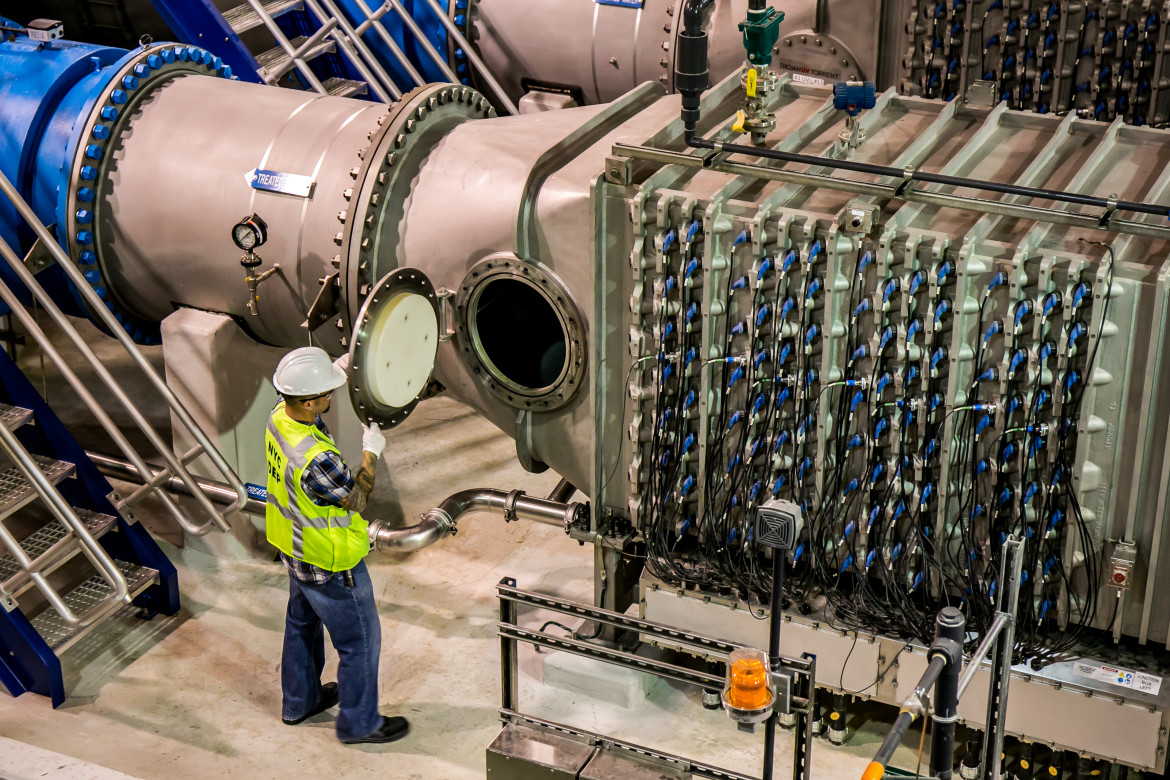Wastewater management refers to the collection, treatment, and disposal or reuse of wastewater generated from various sources, such as domestic, industrial, commercial, and agricultural activities.
It involves a series of processes aimed at minimizing the environmental and public health impacts of wastewater by removing pollutants and contaminants before releasing or reusing the treated water.
UNICEF Launches Project to Restore Wastewater Treatment in Lebanon, Protecting Health and the Environment
The United Nations Children’s Fund (UNICEF) has embarked on a crucial initiative to revitalize wastewater treatment services in Lebanon.
This project aims to reactivate 11 key wastewater treatment plants (WWTPs) across the country, while also raising public awareness about the profound impact of untreated wastewater on both the environment and human health.

By addressing the urgent need for effective wastewater management, UNICEF seeks to reduce children’s vulnerability to water-borne diseases and safeguard their overall well-being.
Addressing Environmental Crises and the Cholera Outbreak:
Lebanon has been grappling with a series of environmental crises, exacerbated by years of neglect and inaction. In October 2022, the country experienced a devastating cholera outbreak, resulting in an estimated 5,000 cases and 23 deaths.
UNICEF swiftly responded to the crisis, ensuring access to clean water, particularly in remote villages. Today, on World Environment Day, Lebanon’s Prime Minister Najib Miqati acknowledges the painful reality faced by the country and emphasizes the significance of UNICEF’s intervention in providing clean water during the cholera outbreak.
The Role of UNICEF and the European Union:
Through a partnership with the European Union, which has consistently supported Lebanon in vital matters, UNICEF aims to encourage the Lebanese government to take responsibility for managing and improving wastewater treatment facilities.
By signing this agreement, the project seeks to reinstate 11 major WWTPs over a two-year period.
However, it is crucial to note that sustained investment and support are required to address the more than 70 existing WWTPs across the country, ensuring continuous protection of the environment from pollution.
Addressing Environmental and Public Health Risks:
The improper operation and maintenance of WWTPs, along with the discharge of inadequately treated wastewater into the environment, pose significant risks to both the environment and public health.
The recent cholera outbreak serves as a stark reminder of the dangers associated with untreated wastewater pollution.
Ettie Higgins, UNICEF Deputy Representative in Lebanon, highlights the importance of preventing the spread of infections and saving lives through the strengthening of water establishments’ capacity for equitable and sustainable wastewater services. UNICEF and the European Union remain committed to this cause.
What are some general benefits in investing towards waste water management
- Environmental Protection: Treating wastewater before disposal or reuse minimizes the contamination of water bodies, protecting aquatic ecosystems and preserving biodiversity. It helps prevent the depletion of oxygen levels in water bodies, known as eutrophication, which can harm fish and other aquatic organisms.
- Public Health: Proper treatment of wastewater reduces the risk of waterborne diseases by removing pathogens, bacteria, and viruses. It helps safeguard public health and prevents the transmission of diseases through contaminated water sources.
- Resource Conservation: Reusing treated wastewater for non-potable purposes reduces the demand for freshwater resources, particularly in water-scarce regions. It promotes sustainable water management and contributes to overall water conservation efforts.
- Economic Opportunities: Efficient wastewater management can create economic opportunities by promoting the development of water treatment technologies, infrastructure construction, and the utilization of treated wastewater for irrigation or industrial processes.
Conclusion:
Wastewater management plays a crucial role in ensuring a safe and sustainable water supply, protecting the environment, and promoting public health and well-being. It requires a combination of infrastructure development, effective treatment processes, and regulatory frameworks to achieve optimal results.
The UNICEF project in Lebanon marks a vital step toward ensuring the effective management of wastewater treatment. By restoring and enhancing WWTPs, this initiative not only protects the environment from pollution but also safeguards public health, particularly the well-being of children.
However, it is crucial that sustained investment and support are provided to address the numerous WWTPs across the country.
Through collective efforts and responsible action, Lebanon can forge a path towards sustainable wastewater management, reducing the risk of waterborne diseases and securing a healthier future for its citizens.
What is our Zeomedia doing to help delivering a better world?
At Zeomedia we are committed to providing solutions for the environment by helping to improve water filtration systems. We have sold more than 800,000 cubic feet of zeolite filter media, saving more than 311,930.34 m3 of water.
With the savings obtained by replacing the sand with Zeomedia, 908,400 people can drink water free of heavy metals and other organisms.
The consumption of water in the world is an issue of vital importance that requires global attention. Equitable access to drinking water and basic sanitation, as well as the responsible and efficient use of water in the different economic sectors, are essential to ensure a sustainable future.
Understanding this data is essential to address the challenges of water scarcity, promote sustainable management and encourage responsible water use practices in all areas of society, supporting local and global initiatives that promote conservation and proper use of this invaluable resource





